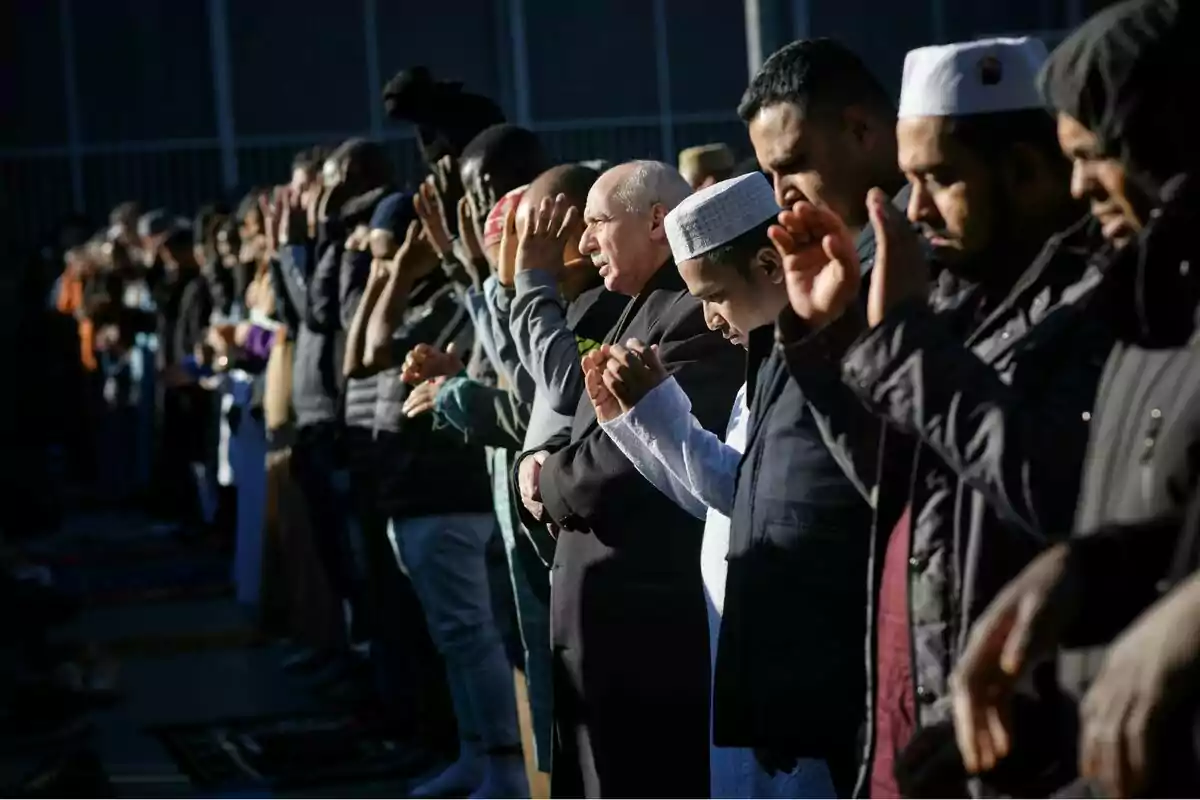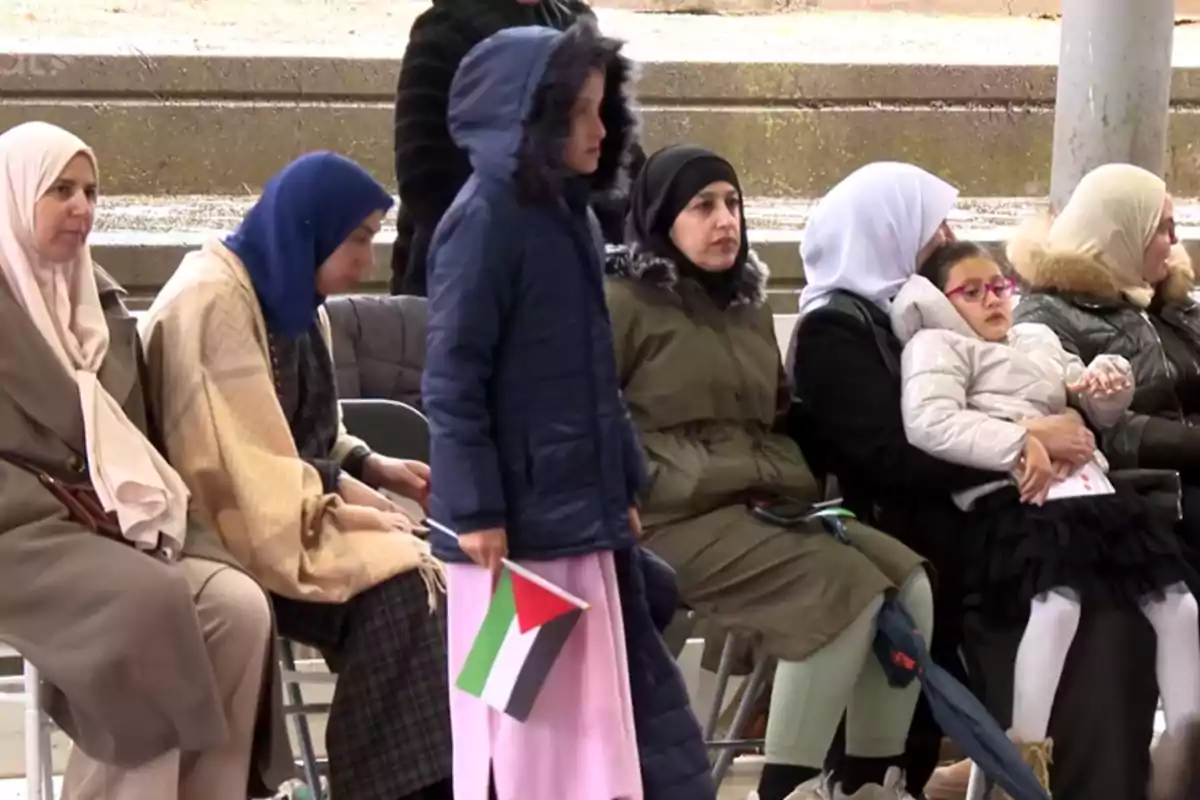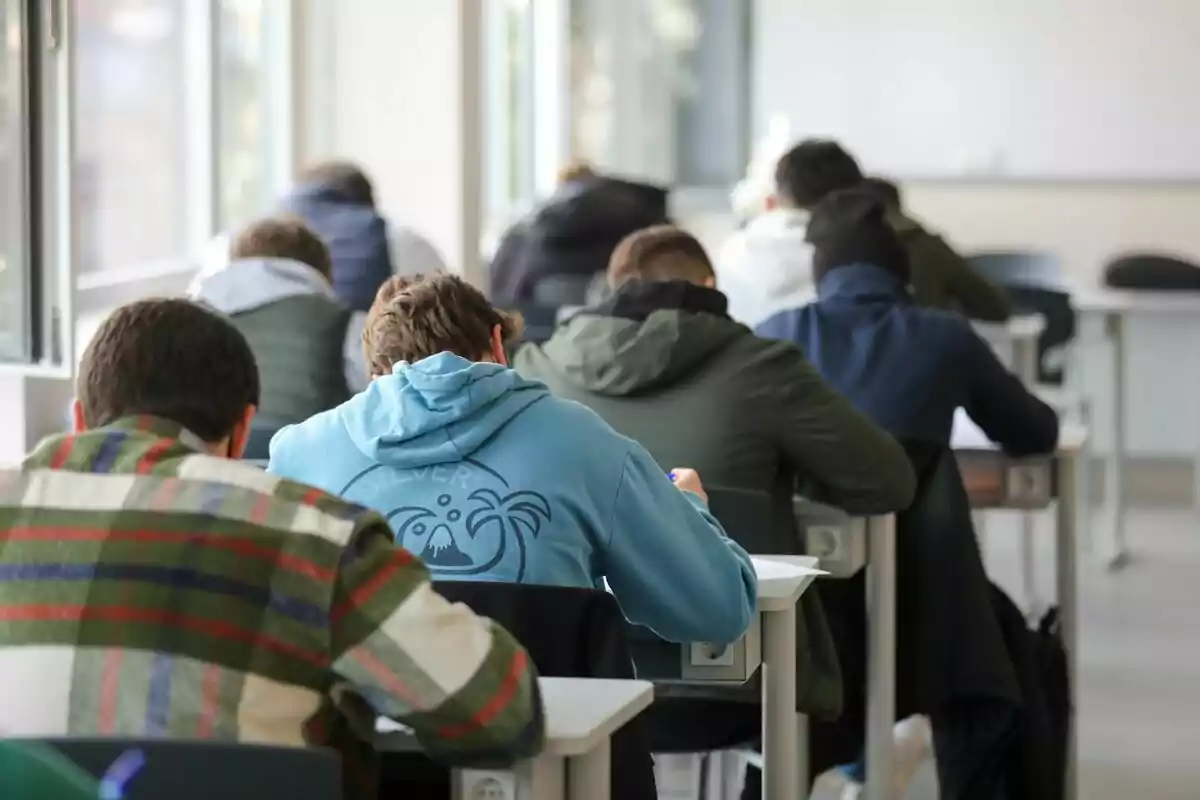
The Islamic Commission Asks that Muslim Children Don't Attend Class During Ramadan
They Appeal to Spanish Legislation to Request Exemption for Religious Reasons
Muslims celebrate Eid Al-Fitr this Monday, the Islamic festival that commemorates the end of Ramadan. For Muslims, it is one of the most significant dates on the calendar. The Islamic Community of Spain has requested that students be allowed to be absent from their school obligations on Monday and Tuesday.

The goal is for children of this faith to join family gatherings and prayers that take place today and tomorrow. In their request, they appeal to the current Spanish legislation. This exempts Muslim students from attending class and taking exams on these dates for religious reasons.
According to Law 26/1992 on Cooperation between Spain and Morocco, Muslim students attending public or charter schools "will be exempt" from attending class and taking exams "on religious holidays and commemorations."
Two Days Without Attending Class
The Idu Al-Fitr or Festival of Breaking the Fast is one of the most desired dates for Muslims. It not only marks the end of a month of fasting, Ramadan, but it is also considered the beginning of a period of joy and community gathering.
The festival begins with a community prayer in mosques or open spaces, followed by family gatherings and gift exchanges. It can extend up to three days, during which prayers and gatherings continue. Students who wish can be absent from classes today and tomorrow, thanks to an authorization issued by the Islamic Community and signed by their parents or legal guardians.
In Spain, there are already more than 2.4 million Muslims, representing 5% of the Spanish population. The largest concentration, more than 600,000, is precisely in Catalonia. This has been clearly reflected in schools, where the ratio of Maghrebi students is increasingly higher, with more concessions from the administration.
More Islam in Schools
The request from the Islamic Community has provoked some criticism. Some see it as an imposition that the Muslim community demands "the adaptation of Spanish education to their customs." For example, with the use of the hijab, the adaptation of school menus, the introduction of Arabic and Islamic religion, or the celebration of Ramadan.

In Spain, the progressive process of secularization of schools occurred in parallel with a gradual introduction of Islam. That is, while Catholic religion was replaced by civic education, Islam and Arabic were imported as new subjects.
Exemptions for Muslim students for religious reasons increase this sense of favoritism toward Islam. This fuels the street debate about concessions to this community, which is increasingly majority in Catalonia.
More posts: